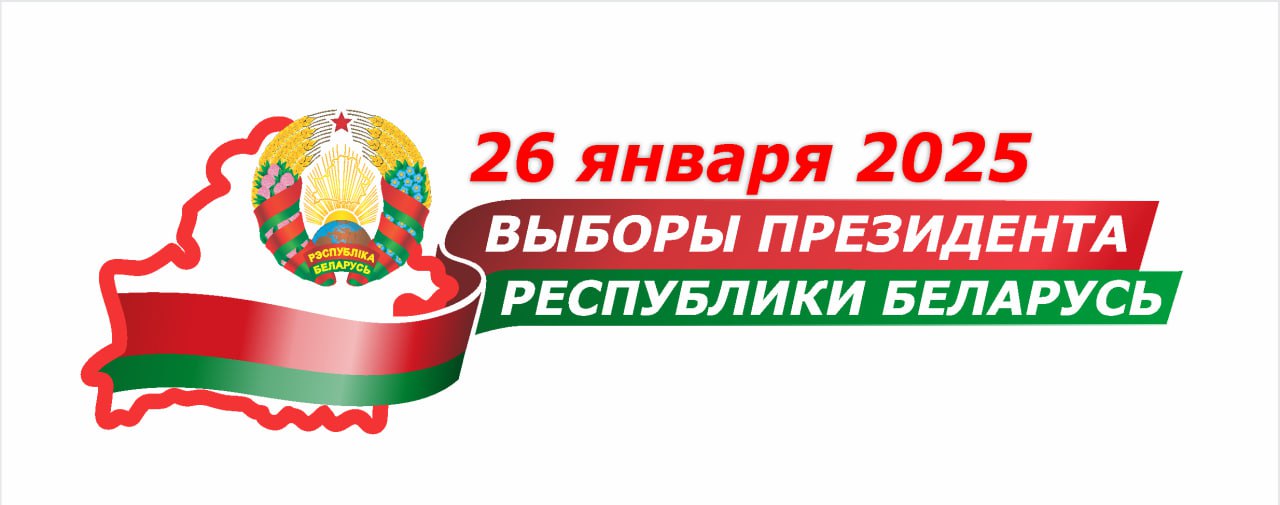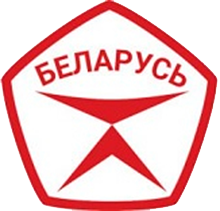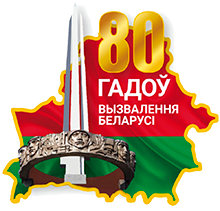In 2004 the president inspected the progress in the harvest campaign in Grodno Oblast. The main message is to work tirelessly, to comply with organizational and technological requirements during the harvest season. Our common loaf depends on every grain. Almost two decades later, the president's attitude to harvesting bread has not changed. In the new episode of BelTA's Youtube project "After the Fact: Lukashenko's Decisions " we will tell you why the president banned the sale of grain. What is the situation with domestic varieties? What does the president call as cut diamonds?
What cereal crops does Belarus grow?
Agriculture in Belarus specializes mainly in the cultivation of crops typical of temperate climates.Crop production focuses on cereals: wheat, barley, triticale, rye, oats, corn, buckwheat. Grain is our bread alongside milk, cheese, sour cream and meat. Cereals occupy a significant share in the feed ration of cattle, pigs and poultry.
"The task was set and it was accomplished. We should achieve the yield of more than 100 centners per hectare, if we take the grain group. Our varieties are competitive with Western ones. This is proved by our colleagues from abroad. Our varieties account for more than 70%. We export a large quantity,” said Sergei Kravtsov, Director General of the Research Center for Agriculture at the National Academy of Sciences of Belarus.
According to him, in the Russian Federation, Belarusian varieties occupy about 3 million hectares, which is a lot. We have 3 million. The price and quality ratio is optimal. Our varieties are competitive. Scientists are working on the quality of the varieties. Wheat, for example, should not only be productive, but also have baking qualities. We should make bread from our varieties, and beer if we are talking about barley. We are one of the top five malt exporters. We draw your attention to the fact that there are the newest varieties.70% of our varieties are used to produce beer, even by foreign brands,” Sergei Kravtsov noted.
How does Belarusian agrarian science overcome climate difficulties
“To make a wide use of domestically-grown seeds.” This decision by the president was criticized at the time. They said why bother, if everything could be bought abroad. Firstly, you have to pay for everything, and secondly, as time has shown, even if you have foreign currency, you can be left without bread due to sanctions. More than 70% of grain areas are now planted with varieties of Belarusian selection.
"It is also my pride that we have preserved agricultural science, and not only in seed production. These are unique people! We have both preserved the science and moved forward. It is worth a lot. People need to understand that bread on a store shelf begins with scientists and these experimental land plots,” Aleksandr Lukashenko said as he visited the breeding and seed unit of the Research Center for Agriculture at the National Academy of Sciences of Belarus in August last year.
This year, Belarus under-harvested one million tonnes of grain due to the weather. This is another challenge for our scientists. Every agricultural season they adjust technologies and give practical recommendations taking into account weather conditions. Harvesting is closely monitored by the president.
Officials have probably grown accustomed to regular inspections from a helicopter. Unharvested ripe grain, according to the president, is a crime.
Aleksandr Lukashenko, having inspected the progress in grain harvesting in Minsk Oblast from a helicopter in August 2008, expressed extreme dissatisfaction with the slow pace. ""I am not satisfied with the course of the harvesting campaign in the region," the president said. "I didn't see any mass harvesting here. I am especially concerned over the situation in Minsk Oblast. Only certain fields were harvested."
Why has Belarus preserved its own agricultural production
Why does the president have such a reverent attitude to every spikelet? Because the country's food security depends on the harvest. Neglecting one's own agriculture is a poor plan. It is not worth hoping for an imported lifeline.
"Every wheat spikelet is worth its weight in gold in our time. Look at the situation in the world. Last year, 828 million people (about a tenth of the world's population) were affected by hunger. The number of people who cannot afford a healthy diet has exceeded 3 billion. Growth of consumer prices for food has played a role as well. The world is one step away from a global food catastrophe. For a variety of reasons. Not only climatic and geographic. There are countries that at one time abandoned their own agricultural production becoming markets for imported products. In the eyes of Western curators, they are more democratic than you and me," Aleksandr Lukashenko said at a ceremony to honor best agricultural workers in Minsk on 18 November 2022.
What grain processing products does Belarus export?
Grain is the strategic product that can never be too much. Of particular value is not so much the raw material itself, but the result of its processing. This is beneficial for both business and the economy as a whole. Selling grain in its raw form does not make much economic sense. It's like timber: foreigners could import our wood, make furniture out of it, and sell it back to us, only three times the price. Belarus specializes in meat and dairy cattle breeding. More than half of the grain is used for livestock feed, and the products are successfully exported. Thus we make money by selling finished products with higher added value.
We are not selling grain abroad for the first time in the last three years. The president was right to ban grain exports. We sell grain in products. We consume only 30% of bakery products; the rest is bound for export. We consume 30% of our alcoholic products; the rest is exported, too,” Sergei Kravtsov said.
He stressed that a kilo of grain costs 30 kopecks. Some types of products, such as amino acids, may earn $300 per kilo. That's how much our industry can process. China is the world's number one grain importer and number one grain exporter,” Sergei Kravtsov added.
Why was a decision taken to purchase grain from Russia?
This year Belarus is set to purchase up to 500,000 tonnes of grain from Russia. This is not because we have nothing to eat, but because it makes economic sense. Moreover, we have agreed on the most favorable prices with our partners. As Deputy Prime Minister Leonid Zayats stated, it is close to the price on the domestic market. The president also noted that the opportunity to buy grain at a good price should not be missed as the situation on the global market is not stable.
”No one will help anyone. The grain deal shone a light on some interesting things. Everyone seems so concerned about Ukraine, everyone seems so eager to help Ukraine and everyone refuses to let Ukraine grain exports pass through their territory. The most concerned Poland and others completely refused to let products from Ukraine into their territory. This is what market means. Therefore, we must mobilize, plan our work so that our people are fed and clothed,” the president told the officials at a conference to discuss the harvest campaign in July 2023.
How will BNBC influence Belarus' agro-industrial complex?
The president's decision is to go even further and do what only a few on this planet manage to do. This is to provide livestock farming with the necessary feed and amino acids, minimize imports, increase exports, and create new jobs. This is all BNBC [Belarusian National Biotechnology Corporation]. According to the president, the implementation of projects like BNBC will take the country to a new technological level.
”We say that grain is the world's new gold in the current conditions. What our corporation, BNBC, produces is without exaggeration real cut diamonds. It is hard to believe but until March 2019 it was an empty field here. A tremendous amount of work has been done over the past three and a half years. Today we are opening a whole complex of plants to produce feed and amino acids,” the head of state said at a ceremony to launch the production of fodder and amino acids at the Belarusian National Biotechnology Corporation in November 2022.
The manufacturing process is expensive, complex and secret. That is why not all countries can afford it. For the first time in 40 years of biotechnologies' existence, Chinese partners shared their best practices with Belarusians. It became possible thanks to the personal agreements between the leaders of the two countries. Since we have such a unique manufacture, we should make the best use of it. The president demands to observe the terms and technologies of fodder procurement, provide a full ration with a sufficient amount of nutritional supplements. This is the responsibility of everyone from an agronomist to an official. Otherwise, why have we built the most modern biotechnological corporation?
“We have built the most advanced biotechnology corporation to produce the best amino acids and fodder. Only four states can boast such a complex. Then use its products. It is fully yours. You just have to balance the diet. Concentrates cannot be handed out by eye. Otherwise, we will face losses in livestock, reduced productivity, and overuse of expensive premixes,” Aleksandr Lukashenko said at a plenary meeting on livestock farming in September 2023.
How much grain does BNBC need to make products?
The main raw material for the production of mixed fodder, premixes, and amino acids is grain. It accounts for about 60%. The enterprise's annual demand is 330,000 tonnes of food grain and about 450,000 tonnes of fodder grain. Almost the entire demand is met by domestic agricultural enterprises.
“As the president said, more countries fly into space than possess biotechnology. Our country has such technology. We can make our own amino acids which can be used both for fodder and food purposes. Europe cannot do it,” Sergei Kravtsov said.
In his words, BNBC makes not only amino acids but also mixed fodder and premixes. “Plants can buy them and get added value. All is thanks to BNBC. If you just grind grain and give it to cattle, its digestibility will be low, around 40%. BNBC make it 99-100%,” Sergei Kravtsov said.
Behind every harvested grain is the hard work of farmers who don't even think about their role. Simply because they are always busy making sure that our table is never empty.
“We, Belarusians, know well that our centuries-old history – including estates and palaces, families of the richest - was built primarily by the work of peasants. The development of our native land has always rested on the shoulders of those who cultivated the land, sowed, plowed, reaped the harvest and baked bread,” the head of state said at a ceremony to honor the best agricultural workers in November 2022.
Written by belta.by












































